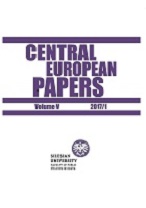Language Policy and National Feeling in Context Ukraine’s Euromaidan, 2014–2016
Language Policy and National Feeling in Context Ukraine’s Euromaidan, 2014–2016
Author(s): Csilla Fedinec, István Csernicskó Subject(s): Politics / Political Sciences, Social Sciences
Published by: Slezská univerzita v Opavě, Fakulta veřejných politik
Keywords: Ukraine; Euromaidan; crisis; national identity; language policy
Summary/Abstract: Ukraine is the best example of "nationalizing" nationalism. During its twenty-five year old existence the language question – in addition to historical approach and ethnical identity – has belonged to the unclosed questions of personal and group identity, and represents one of the central themes of political struggle. Official Ukrainian language policy perma- nently wants to promote the use of Ukrainian or Russian by overshadowing one or the oth- er. Measures regulating language use have never been consequently applied, which fact in itself is enough to represent a permanent subject for political campaigns. Political powers unable to solve actual economic and social problems wanted to distract attention by this means. That is why the politicized language question could contribute to the political crisis and the outbreak of the armed conflict at the end of 2013 and at the beginning of 2014 in a politically unstable country facing economic breakdown. The present paper examines the role of the language question in the Ukrainian crisis in the period of 2014–2016.
Journal: Central European Papers
- Issue Year: 5/2017
- Issue No: 1
- Page Range: 81-100
- Page Count: 20
- Language: English

